Mental health is health so we are going to dive into four mental health topics on this resource page. If you or anyone you know is dealing with a mental health challenge and need resources, tips, or just an ear to listen, we’re here for you.
If you are having a mental health, substance use, or suicidal crisis, call 988. This hotline is your connection to free, confidential support during a mental health, substance use, or suicidal crisis. You will be connected to a professional counselor 24/7.
—
Table of Contents (click to jump to each section)
Anxiety Disorders
Substance Use Disorders
Suicide Prevention
Eating Disorders
—
Anxiety Disorders
Anxiety is a feeling of worry or dread about a stressful situation. When we are feeling stress or anxiety, our bodies respond by producing stress hormones such as cortisol, which shift our bodies from a “rest and digest” state into a state of “fight/flight/freeze” so that we are ready to react to the stressor in our environment. Sometimes, our bodies have a hard time turning off the “fight/flight/freeze” mode, and an anxiety state can be triggered and maintained by any number of worrisome thoughts (the inner saboteur). Anxiety disorders occur when worrying or feelings of overwhelm or dread become excessive and interfere with your daily life.
Anxiety disorders come in various types, and each have different modes of treatment for the affected individual. Some types of anxiety disorders are summarized below.
Keep in mind, only a licensed provider can diagnose an anxiety disorder.
Types of Anxiety Disorders:
- Generalized Anxiety Disorder- characterized by persistent worry about everyday things that are out of proportion to the perceived threat. An estimated 3.1% of adults have been diagnosed with GAD, however only 42% seek treatment.
- Panic Disorder- characterized by an abrupt surge of intense fear (panic attack) with any combination of the following symptoms: pounding heart, numbness in the extremities, shortness of breath, feelings of choking, fear of death, fear of losing control, dizziness, nausea, and/or chest pain
- Specific Phobia- excessive or unreasonable anxiety or fear around specific stressors, such as snakes, flying, blood, or heights
- Social Anxiety Disorder- persistent fear of one or more social or performance situations in which the person is exposed to unfamiliar people or to possible scrutiny by others
Signs and Symptoms of an Anxiety Disorder (please note that this is not an exhaustive list and that noticing one of more of these does not mean a person has an anxiety disorder):
- Restlessness
Irritability - Being watchful or anticipating the worst
- Feelings of dread or uncontrollable worry
- Racing heart or palpitations
- Shortness of breath
- GI distress
- Headaches
- Fatigue/insomnia
- Sweating
- Tremors or shaking
Where can I go for help?
If you or someone you know may be struggling with anxiety, please know that you are not alone and that help is available.
- The National Institute of Mental Health (NIMH)
- Anxiety and Depression Association of America (ADAA)
- NAMI Greater Cleveland
OCD and Anxiety Center of Cleveland - The Centers Ohio Behavioral Health Services
Substance Use Disorders
Substance use disorder is a behavioral and mental health condition characterized by a person’s inability to control their use of substances such as alcohol, medications, and other drugs. Substance use disorders impact people of all genders, ages, races, socioeconomic statuses, religions, sexual orientations, and body shapes/sizes. Substance use disorders are not a choice.
Facts:
- Opioid use disorder has the first highest mortality rate of any psychiatric illness.
- 70% of users who try an illegal drug before age 13 develop a substance abuse disorder within the next 7 years compared to 27% of those who try an illegal drug after age 17.
- Over 70,000 drug overdose deaths occur in the US annually.
- 20.4% of the US population, or 20.3 million Americans will experience alcohol use disorder at some point in their lifetime.
- Over half of people aged 12 or older in the US have used illegal substances at least once in their life.
- Only 6.5% of people with a substance use disorder will receive treatment.
Types of Substance Use Disorders:
- Alcohol use disorder
- Caffeine use disorder
- Cannabis use disorder
- Hallucinogen use disorder
- Inhalant use disorder
- Opioid use disorder
- Sedative use disorder
- Hypnotic and anxiolytic use disorder
- Stimulant use disorder
- Tobacco use disorder
Signs and Symptoms of a Substance Use Disorder (please note that this is not an exhaustive list and that noticing one of more of these does not mean a person has a substance use disorder):
- Unsuccessful efforts to cut down or control substance use
- Difficulty fulfilling responsibilities at home, school, or work due to substance use
- Spending significant time obtaining or using substances
- Taking substances in larger quantities or higher frequencies than prescribed or recommended
- Experiencing withdrawal symptoms (anxiety, fatigue, sweating, tremors, muscle aches or pains, irritability, insomnia, nausea, vomiting, seizures, confusion, loss of appetite)
Where can I go for help? If you or someone you know may be struggling with a substance use disorder, please know that you are not alone and that help is available.
- Substance Abuse and Mental Health Service Administration (SAMSHA)
- Recovery Resources (Our Charity of the Month!)
- Highland Springs
- Alcoholics Anonymous Cleveland
- Narcotics Anonymous Cleveland
Suicide Prevention
Depression is a common but serious mood disorder. It involves a depressed mood (feeling sad, irritable, empty, or hopeless) and/or loss of pleasure in activities one used to enjoy for long periods of time. Globally, an estimated 5% of adults struggle with depression, and it is 50% more common in women, although this number may be inflated due to men being statistically less likely to seek treatment for mental illness.
Did you know that more than 700,000 people die due to suicide each year? Suicide is the fourth leading cause of death in 15-29 year old’s and is also very high in the elderly. Although there are effective treatment options for depression, including cognitive behavioral therapy, medication, and others, more than 75% of people in low and middle income countries do not receive treatment. Barriers to care also include social stigma associated with seeking help.
Remember, you are not alone when you struggle with depression or suicidal thoughts.
Signs and Symptoms of a Depression (please note that this is not an exhaustive list and that noticing one of more of these does not mean a person has depression):
- Decreased concentration or indecisiveness
- Feelings of guilt
- Low self worth
- Hopelessness about the future
- Thoughts of suicide
- Disrupted sleep patterns
- Changes in appetite or weight
- Lethargy, apathy, and low energy or fatigue
- Frustration or irritability
Risk Factors for Depression and Suicide:
- Family history increases chances of depression by 11x
- The risk of suicide in a person diagnosed with depression in 20x higher than that of the general population
- Family history of childhood maltreatment or other traumatic events increase risk for depression and suicide
- Substance abuse both increases risk and also occurs at higher rates in those with depression
Warning Signs of Suicidal Ideation:
- Doing risky or self-destructive things
- Having or talking about having a plan, or becoming focused on dying
- Giving away meaningful belongings
- Saying goodbye to friends and loved ones
- Changes in mood
- Sometimes, there are no discernible warning signs
Where can I go for help? If you or someone you know may be struggling with depression or thoughts of suicide, please know that you are not alone and that help is available.
- 988 Crisis Hotline OR 899lifeline.org/chat – 24/7 support
- NAMI Greater Cleveland
- United Way’s 211 Help Link
- St. Vincent Charity
- Psychiatric Emergency Department
An eating disorder is a behavioral and mental health condition characterized by persistent disturbances to eating patterns and associated thoughts and emotions. Eating disorders impact people of all genders, ages, races, socioeconomic statuses, religions, sexual orientations, and body shapes/sizes. Eating disorders are not a choice.
Fast Facts:
- 9% of the U.S. population or 28.8 million Americans will experience an eating disorder at some point in their lives
- Every 52 minutes, one person dies as a direct result of their eating disorder.
- Eating disorders have the second highest mortality rate of any psychiatric illness.
- Less than 6% of people with an eating disorder would be considered underweight.
- BIPOC individuals are half as likely to be diagnosed or receive treatment for an eating disorder.
LGBTQ+ individuals experience a greater incidence of eating disorders.
Types of Eating Disorders:
- Anorexia Nervosa
- Bulimia Nervosa
- Binge Eating Disorder
- Other Specified Feeding and Eating Disorder
- Avoidant Restrictive Food Intake Disorder
Signs and Symptoms of an Eating Disorder (please note that this is not an exhaustive list and that noticing one of more of these does not mean a person has an eating disorder):
- Rapid or persistent decline in food intake
- Relentless pursuit of thinness
- Intense fear of gaining weight
- Distorted body image
Loss of control with eating - Abuse of diet pills, laxatives, or diuretics
- Frequent dieting
- Eating in secret
- Frequently talking about food, weight, or shape
- Dramatic weight loss
- Lack of appetite
- GI distress
- Frequent dizziness
- Menstrual irregularity
- Hair loss
- Shortness of breath
- Excessive or compulsive exercise
Where can I go for help? If you or someone you know may be struggling with an eating disorder, please know that you are not alone and that help is available.
- National Eating Disorders Association (NEDA)
- The Emily Program
- Equip Health
- Center for Evidence Based Treatment





